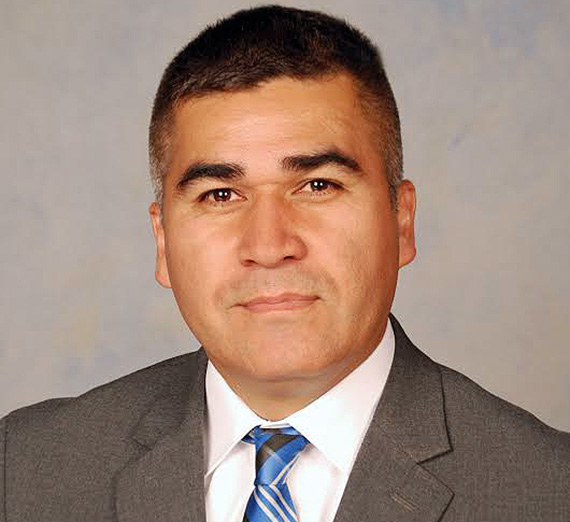GU's Ortiz Named to Bishops' National Review Board

SPOKANE, Wash. — Fernando Ortiz, Ph.D., director of the Counseling Center at Gonzaga University, has been appointed to the National Review Board by Cardinal Timothy Dolan of New York, president of the U.S. Conference of Catholic Bishops. The Board was established by the "Charter for the Protection of Children and Young People" to collaborate with bishops to prevent sexual abuse of U.S. minors by persons in service of the Church.
The selection followed a lengthy process that included 12 nominated psychologists from across the United States. The NRB is a consultative body — comprised of lay attorneys, psychologists and other professionals — that advises the USCCB on implementation of the Charter and the prevention of sexual abuse.
"It is truly an honor to represent Gonzaga University at the national level on this important issue," said Ortiz, a native of Mexico who moved to Los Angeles in 1990, at age 18. "Ultimately, this is about voicing the needs of victims."
Ortiz spent five years at St. John's Seminary College, Camarillo, Calif., where he earned a bachelor's degree in philosophy, before discovering his calling as a psychologist. He was hired as assistant director of the Counseling Center at Gonzaga in 2009, and named director in 2011.
Ortiz holds a master's degree in counseling psychology from Santa Clara University, and a master's in religious studies from Gonzaga. He earned a doctorate in counseling psychology from Washington State University with a specialization in cross-cultural psychology, personality and culture, and ethnic minority mental health. Ortiz, who finished a post-doctoral specialization at University of California at Santa Barbara in cross-cultural counseling, was an assistant professor of clinical psychology in the doctoral program at Alliant International University, San Diego. A licensed psychologist, Ortiz is certified by the American Board of Professional Psychology in Counseling Psychology.
'Critical Conversations' Begin in Catholic Diocese of Spokane, Co-Sponsored by Gonzaga
While Ortiz's first meeting with the National Review Board is in June, his work has already begun at the local level. Ortiz and Rev. Gerard J. McGlone, S.J., Ph.D., director of the Saint John Vianney Center in Downingtown, Pa., (33 miles west of Philadelphia) conducted two, three-hour workshops Thursday, May 16 at the St. Thomas More Parish Center in Spokane to implement the Critical Conversations Program in all Catholic parishes and schools in Spokane and neighboring dioceses.
Critical Conversations is an educational training and prevention program that presents case studies for priests, deacons, and lay ministers. In the morning workshop, Ortiz and Rev. McGlone trained those who will then implement the program and teach it to others in all Catholic Diocese of Spokane churches and schools. In the afternoon session, Ortiz and Rev. McGlone conducted an actual training of the Critical Conversations Program for all Spokane Diocese priests. The trainings are co-sponsored by the Catholic Diocese of Spokane, Gonzaga, and VIRTUS. Critical Conversations is a collaborative and groundbreaking effort of the Archdiocese of Chicago, the Saint John Vianney Center in Pennsylvania, and the VIRTUS Programs.
VIRTUS is the brand name that identifies best practices programs to help prevent wrongdoing and promote "rightdoing" within religious organizations. The word "virtus" derives from Latin, and means valor, moral strength, excellence, and worth. In ancient times, virtus denoted a way of life and manner of behavior that always aspired to the highest, most positive attributes of people and aspects of human interaction. Critical Conversations training differs from the Protecting God's Children program in that there are separate and distinct case studies for priests, deacons and lay ministers. Critical Conversations is based on the highly regarded Instruments of Hope and Healing Program that most religious have used in the United States. The focus in Critical Conversations is on healthy adult boundaries and the emerging role of technology and the Internet.
